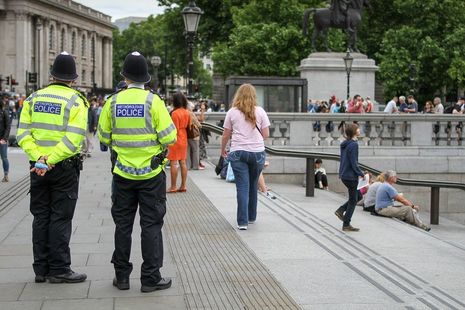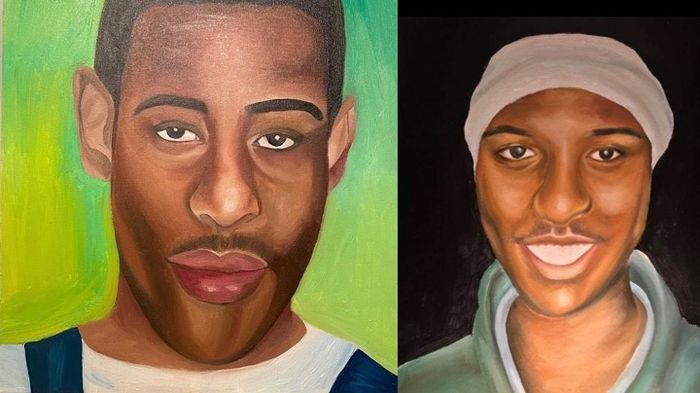Under lockdown, we should be increasingly critical about Police use of tasers
Sophie Williams-Dunning argues that the stories which have emerged from lockdown regarding the use of tasers are a cause for concern and should lead us to question the extent of the police’s power

Recently, we have heard stories about the police's increased use of tasers. The first story, of police tasering a man three times at a petrol station, in the presence of his wailing young son, has sparked widespread outrage. The second, of police tasering a man who they were pursuing for drug charges whilst he jumped over a fence, resulted in a ‘life-changing’ injury. The law firm, Irwin Mitchell, states that police officers are allowed to use tasers only when ‘faced with a serious threat of violence’. But the above accounts suggest otherwise; neither of the subjects posed any serious threat of violence, but it is important to note that both were black.
"Some of these incidents indicate that the police might be taking advantage of empty streets and inflated powers..."
Lockdown has sparked a spate of incidents where police officers have overstepped their authority, with critics warning against a descent into a “police state”. Many of these incidents have been ill-advised attempts by the police to enforce rules set out by the government. More worryingly, however, some of these incidents indicate that the police might be taking advantage of empty streets and inflated powers in order to pick on individuals. It’s hard not to notice, when watching videos of the police arresting a man running errands or threatening to ‘make up’ charges against a man in Lancashire, that many of those affected by these injustices belong to ethnic minority groups, with the black community being a particularly disproportionate target.
It has long been reported that the black community is overrepresented in UK prisons and is more likely to be treated forcefully by the police. In this context, the increasing use of tasers on British streets represents a further threat, not only of violence, but of racialised injustice. The Guardian reported in 2017 that black and mixed race people account for 40% of taser usage in London, despite only accounting for roughly 15% of the capital’s population. The force’s poor track record with tasers includes the story of officers in Bristol tasering their own race relations adviser, Judah Adunbi, in 2017, after allegedly mistaking him for another man. Mr Adunbi, 63, said he felt his life was in danger when he was tasered to the head whilst attempting to enter his own house. He also spoke of being greatly “disappointed” by the encounter, especially given he had already sustained a serious injury from police violence when he was mistaken for the same person back in 2008.
"The Guardian reported in 2017 that black and mixed race people account for 40% of Taser usage in London"
These outrageous accounts lead us to question the value of Taser usage by the police. Tasers are an illegal, ‘less-lethal’ weapon in the UK, which were first rolled out to police officers in 2003. In the last 17 years, Taser usage has been consistently amped up, culminating with the current government’s announcement last September that £10 million would be invested in the weapon, in order to arm a further 10,000 officers. Whilst these changes are popular with officers and, generally, with the public, police chiefs and human rights experts have cast doubts over the wisdom of further arming the force. Amnesty international, for instance, has warned against Tasers ‘becoming the norm for day-to-day policing’ due to their involvement in the deaths of 17 people in the UK and the fact they are widely recognised to be used disproportionately against ‘people with mental health issues and BAME people’. Even more alarming, is the evidence that police officers are rarely, if ever, suspended or punished for their mistakes regarding taser usage. Since 1990, 1740 people have died in police custody in the UK, yet no British police officer has ever been held accountable for these deaths.
The stories and videos of police overstepping their authority during this lockdown resemble what many typically associate with the kind of incidents that occur in the United States, but not here, in the UK. These figures, revealing unpunished police brutality and systemic racism, force us to face the facts. Whilst there were, of course, high-profile cases of police brutality before the introductions of tasers, these new weapons change the face of standard street policing in the UK, which has traditionally been unarmed and based on public consent. It is for this reason that one police chief has argued that the increasing use of tasers threatens the understanding between the police and the public which forms the very basis of British policing. Furthermore, the very presence of tasers has been shown in one study to actually escalate street violence, making both police officers and suspects more aggressive towards one another.
Tasers, thus, deepen the rift between the police and the communities they are meant to serve, further exposing ethnic minority (particularly Black) communities to state-mandated racial violence. The increasing introduction of tasers onto the streets means that chance encounters with the police for more minor crimes like possession, drink driving or breaking of lockdown rules are much more likely to involve unwarranted physical assault with a potentially lethal weapon, the guilty perpetrator of which will most likely receive no punishment. The stories of police brutality that have emerged under lockdown should prompt us to urgently reconsider the use of tasers and address the culture of invincibility in the British police force.
 News / Right-wing billionaire Peter Thiel gives ‘antichrist’ lecture in Cambridge6 February 2026
News / Right-wing billionaire Peter Thiel gives ‘antichrist’ lecture in Cambridge6 February 2026 Features / From fresher to finalist: how have you evolved at Cambridge?10 February 2026
Features / From fresher to finalist: how have you evolved at Cambridge?10 February 2026 Film & TV / Remembering Rob Reiner 11 February 2026
Film & TV / Remembering Rob Reiner 11 February 2026 News / Churchill plans for new Archives Centre building10 February 2026
News / Churchill plans for new Archives Centre building10 February 2026 News / Epstein contacted Cambridge academics about research funding6 February 2026
News / Epstein contacted Cambridge academics about research funding6 February 2026










